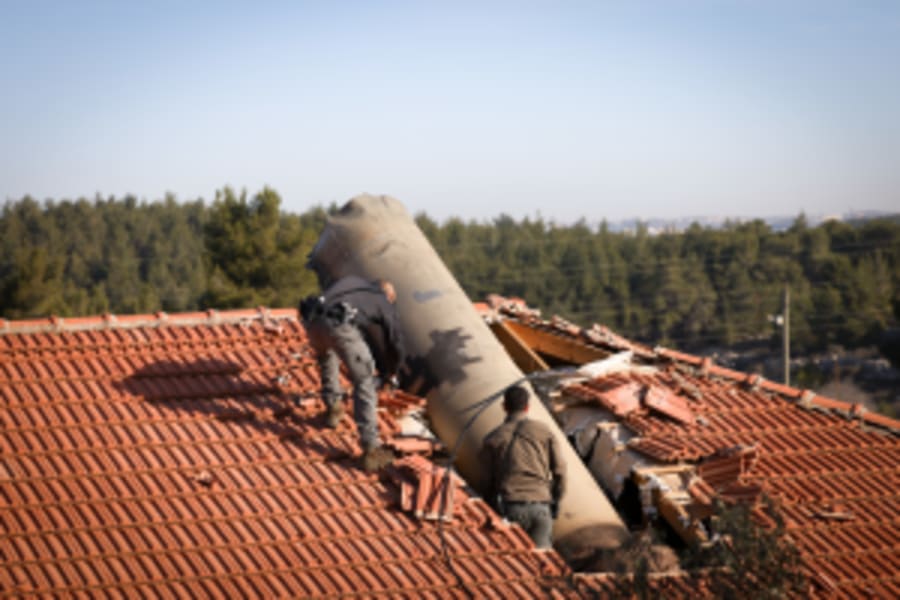Sleepless in the battle: Israel struggles with the ongoing effects of war-time sleep deprivation

The alarms always seem to come in the middle of the night. Israelis had grown somewhat accustomed to the Houthis’ nocturnal missile launches from Yemen. But when Iran unleashed its firepower on Israel, the toll on the nation’s sleep was far worse. People across the country are still struggling to return to normal.
The damage caused by Iranian warheads striking residential areas was catastrophic, raising the stakes significantly. The blaring alerts from the Homefront Command and missile warning apps jolted people awake with a new sense of urgency. Many had grown complacent about the Houthi rockets, which were usually intercepted mid-air, but far fewer were willing to take chances with Iranian ballistic missiles.
When the alarms go off, adrenaline pumps round the body leaving one wide awake – primed for danger and ready for action. Immediately. For many, the drill was to get to the basement or communal shelter. Others had to leave their house and go outside to find a safe place to take cover. Some had safe rooms in their own homes, and others had no shelter at all.
New technology was able to give the warning a good half hour before an impending strike, making sure everyone had a chance to find shelter. On the one hand there’s more chance of survival, on the other, people lose even more sleep.
After many sleepless nights and the constant need to remain on high alert, thousands of Israelis are struggling to return to their normal routines and sleep patterns. According to the Jerusalem Post, many are experiencing high levels of stress and extreme fatigue.
Whether due to lingering exhaustion from the conflict or ongoing sleep difficulties, many Israelis report feeling drained and struggling to function. According to the JPost, people are experiencing trouble focusing, working, studying, and maintaining their daily routines.
The human body typically requires between seven and nine hours of sleep each night, though individual needs vary. Children and teenagers, of course, need significantly more. During sleep, the body restores itself and the brain processes thoughts and experiences, helping prepare for the next day. Without this essential recovery, resilience declines and healthy functioning begins to deteriorate. Chronic fatigue can seriously impact health – and it's no coincidence that sleep deprivation is used as a form of torture.
While most people will eventually return to their normal sleep patterns, others may need to consult a doctor if severe fatigue persists for several weeks after the disturbances have ended. According to the JPost, warning signs can include difficulty concentrating even after rest, involuntary daytime sleep episodes, recurring headaches, memory issues, impaired social or work functioning, increased heart rate, and general physical weakness.
A family doctor will be able to assess the likely cause of the problems, whether it is related to the temporary situation or more of an ongoing issue. Just as a dentist will make recommendations for dental hygiene, so a doctor can suggest ways to improve sleep hygiene such as establishing a steady routine of going to bed and getting up, maintaining some exercise but not too late in the day, and avoiding caffeine and screen time toward bed time. A cool, tranquil bedroom will help as well.
If initial evaluations by a doctor don’t resolve the issue, further investigation may be needed. Blood tests can sometimes uncover underlying conditions such as anemia, low iron or vitamin D levels, thyroid imbalances, or liver and kidney dysfunction – each of which has its own treatment options. If no cause is found, patients may be referred to a sleep laboratory, where specialists can monitor sleep patterns and recommend targeted solutions to help restore a disrupted sleep cycle.
Rockets continue to be fired at Israel from Yemen and Gaza, but there are signs that peace may be on the horizon. The Iron Dome intercepts most of these smaller rockets, and for now, the nightly sirens have stopped.
The sudden announcement of a ceasefire with Iran felt like emotional whiplash for many in the country – people were told they could return to “normal,” almost overnight. Only time will tell how long it takes for Israel to regain its balance and once again sleep in peace.

Jo Elizabeth has a great interest in politics and cultural developments, studying Social Policy for her first degree and gaining a Masters in Jewish Philosophy from Haifa University, but she loves to write about the Bible and its primary subject, the God of Israel. As a writer, Jo spends her time between the UK and Jerusalem, Israel.
You might also like to read this:















